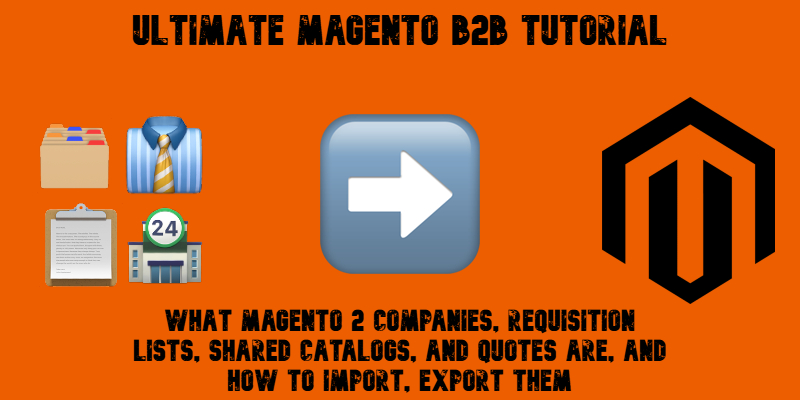Ultimate Magento B2B Tutorial: What Magento 2 Companies, Requisition Lists, Shared Catalogs, and Quotes Are, and How to Import, Export Them

B2B e-commerce is rapidly evolving, and Magento B2B (Adobe Commerce) stands out as a powerful solution for wholesalers, manufacturers, and enterprise-level merchants. With native Magento 2 B2B features like company accounts, shared catalogs, requisition lists, and negotiable quotes, businesses can streamline complex purchasing workflows and manage client-specific pricing with ease.
However, while Magento 2 B2B is feature-rich out of the box, its default import and export tools fall short when handling B2B-specific data. That’s where Firebear’s Improved Import & Export extension comes into play. It unlocks full support for Magento 2 B2B entities, enabling seamless data exchange between your store and external CRMs, ERPs, or marketplaces.
In this guide, you’ll explore how Magento 2 B2B works, how to import and export key B2B entities, and how to boost your operations with advanced automation tools tailored for B2B e-commerce in Magento 2.

